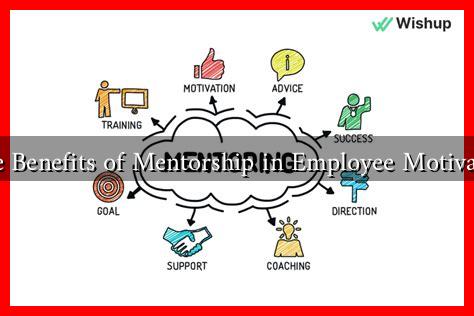-
Table of Contents
What Are the Benefits of Mentorship in Employee Motivation in 2025
As we move further into 2025, the workplace landscape continues to evolve, driven by technological advancements, shifting employee expectations, and a growing emphasis on mental well-being. One of the most effective strategies organizations are adopting to enhance employee motivation is mentorship. This article explores the multifaceted benefits of mentorship in fostering employee motivation, supported by relevant examples, case studies, and statistics.
The Role of Mentorship in Employee Development
Mentorship is a relationship in which a more experienced individual guides a less experienced one, providing support, advice, and encouragement. In 2025, mentorship has become a cornerstone of employee development, offering numerous benefits that directly impact motivation levels.
- Skill Development: Mentorship programs facilitate the transfer of knowledge and skills, enabling employees to grow in their roles. For instance, a study by the Association for Talent Development found that organizations with mentoring programs experience a 20% increase in employee performance.
- Career Advancement: Employees who engage in mentorship are more likely to receive promotions and salary increases. According to a report by the Harvard Business Review, 84% of CEOs attribute their success to having had a mentor.
- Increased Job Satisfaction: Mentorship fosters a sense of belonging and support, leading to higher job satisfaction. A Gallup survey revealed that employees with mentors are 27% more likely to feel engaged at work.
Building a Culture of Trust and Communication
Effective mentorship creates an environment of trust and open communication, which is essential for employee motivation. In 2025, organizations are recognizing that a supportive culture can significantly enhance employee morale.
- Open Dialogue: Mentors encourage mentees to express their thoughts and concerns, leading to a more transparent workplace. This open dialogue can help identify and address issues before they escalate.
- Feedback Mechanism: Regular feedback from mentors helps employees understand their strengths and areas for improvement, fostering a growth mindset.
- Emotional Support: Mentors often provide emotional support, helping employees navigate challenges and stressors, which is crucial for maintaining motivation.
Enhancing Employee Retention
High employee turnover can be detrimental to organizations, leading to increased recruitment costs and loss of institutional knowledge. Mentorship plays a vital role in enhancing employee retention rates.
- Sense of Belonging: Employees who feel supported and valued are less likely to leave their jobs. A study by the Society for Human Resource Management found that organizations with mentorship programs have a 50% higher retention rate.
- Career Path Clarity: Mentors help employees navigate their career paths, providing clarity and direction that can reduce feelings of uncertainty and dissatisfaction.
- Increased Loyalty: Employees who have mentors often develop a stronger emotional connection to their organization, leading to increased loyalty and commitment.
Case Studies: Successful Mentorship Programs
Several organizations have successfully implemented mentorship programs that have significantly boosted employee motivation and engagement.
- Google: Google’s “g2g” (Googler-to-Googler) program encourages employees to mentor each other, resulting in a more collaborative culture and increased job satisfaction.
- IBM: IBM’s mentorship initiative pairs new hires with seasoned employees, leading to a 30% increase in retention rates among new employees.
- Salesforce: Salesforce has a structured mentorship program that has been linked to a 25% increase in employee engagement scores.
Conclusion: The Future of Mentorship in Employee Motivation
As we navigate the complexities of the modern workplace in 2025, mentorship emerges as a powerful tool for enhancing employee motivation. By fostering skill development, building a culture of trust, and improving retention rates, mentorship programs can significantly impact organizational success. Companies that prioritize mentorship not only empower their employees but also create a more engaged and motivated workforce. As the workplace continues to evolve, investing in mentorship will be crucial for organizations aiming to thrive in an increasingly competitive landscape.
For more insights on mentorship and employee engagement, consider exploring resources from the Association for Talent Development and the Society for Human Resource Management.

